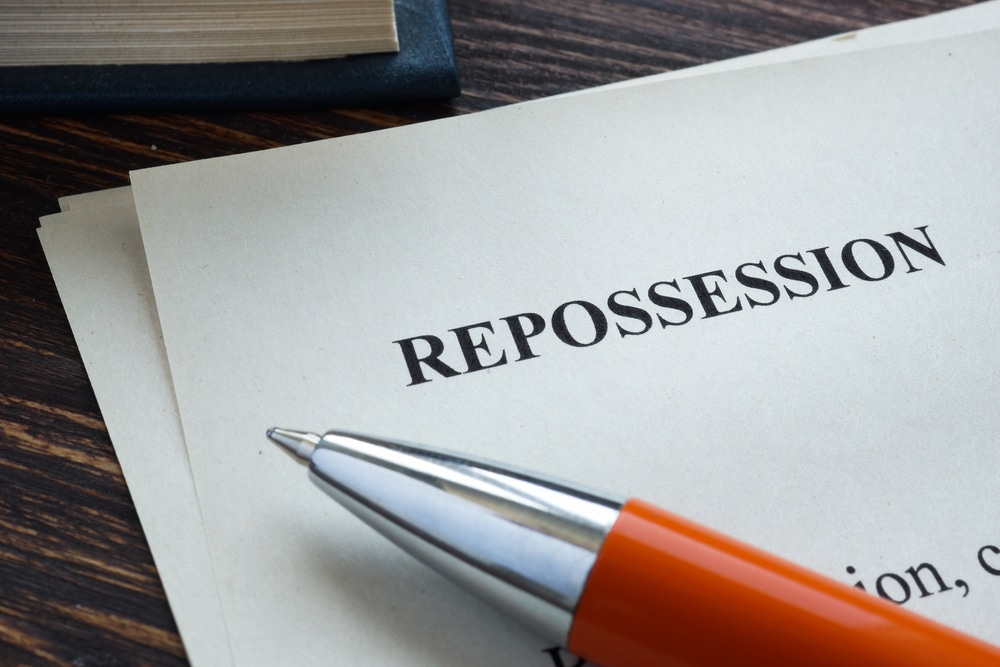Buying a house is the most significant financial commitment in most people’s lifetimes.
Unfortunately, some homeowners’ properties end up being repossessed.
In this blog, we’ll explore the reasons behind house repossessions and the importance of keeping a record of them.
What is a house repossession?
A house repossession occurs when a homeowner fails to meet the mortgage repayments.
After a certain number of unmet payments, the lender may begin a process to take possession of the property and sell it to recover the outstanding debt.
Repossession is typically viewed as a last resort. Most lenders will work with the homeowner to keep their home before legal action is taken.
Under some circumstances, they might even allow a 12-month grace period for repayments.
It is also possible to stop house repossession once the process has been started.
Why does a house repossession take place?
There are a variety of reasons why a repossession may take place, including:
Job loss
In the case of job loss, homeowners may struggle to make their mortgage payments.
Sometimes, they may find a new job, but their salary or wage may be lower than the previous job.
(It’s worth mentioning that people can sign on after redundancy).
Illness
Ill health can also lead to a house repossession. If a homeowner becomes seriously ill or disabled and is no longer able to work, they may struggle to cover their mortgage payments.
Even if they have insurance, it may only sometimes cover all their expenses, leaving them in a difficult financial situation.
Divorce
Divorce or relationship breakdown can also lead to a property being repossessed.
If a couple who has purchased a house together breaks up or divorces, they may have to sell their property to divide the proceeds.
If they owe more on their mortgage than the property is worth, this can lead to a short sale, damaging their credit rating.
In some cases, where one spouse remains in the house and the other moves out, the latter may refuse to pay.
This can leave the other in a difficult financial situation if they cannot afford the payments independently.
Unexpected expenses
If a homeowner must make unforeseen house repairs, it can be expensive, leaving them with less money to make their mortgage payments.
Similarly, homeowners may face high general bills and property maintenance costs that make it difficult to continue paying the mortgage.
Unaffordability
Sometimes, homeowners may have taken out a mortgage they couldn’t afford.
While mortgage lenders carry out stringent affordability checks on applicants, passing does not always mean that the buyer will always be able to afford the mortgage.
For example, a self-employed person may be approved based on their income at the time but then lose business, reducing their income and making it difficult to keep up with mortgage repayments.
Homeowners who begin experiencing financial difficulties should seek assistance to avoid repossession.
Most lenders offer various types of support, such as payment holidays, to help homeowners find a solution before taking legal action.
Where are house repossessions recorded?
House repossessions are recorded in various places, the most significant of which is the Land Registry.
The Land Registry is responsible for maintaining an accurate record of all property transactions in England and Wales.
Its documents include details of all sales and purchases, as well as repossessions. This information is available to the public for a fee.
House repossessions are recorded by credit reference agencies, in addition to the Land Registry.
Examples include Experian and Equifax, each of who collect and store information about individuals’ credit histories, including:
- Issued payments
- Defaults
- House repossessions.
Lenders can use this information to assess an applicant’s lending risk. When a house is repossessed, this record may affect the homeowner’s ability to secure credit in the future.
Finally, local news outlets such as local newspapers and websites may also record house repossessions.
Publishing details of repossessed properties in the local area informs the public and helps potential buyers find reduced-price properties.
Why are house repossessions recorded?
There are several reasons why house repossessions are recorded.
Transparency
Correct records ensure transparency, allowing potential buyers to make an informed decision regarding potential properties.
Market integrity
Doing so accurately describes property transactions and helps maintain the property market’s integrity.
Lending risk assessments
Lenders can also use these records to assess the risk of lending to applicants.
If you are worried about your financial history, it may be worth investigating the redundancy appeal process.
Selling your house as quickly as possible
If you want to offload your property quickly, including before a house repossession, selling to We Buy Any Home is an excellent option.
We can buy your house for cash, so you can receive the funds in your account within 7 days and sell the house in any condition.
Get in touch today for a free, no-obligation valuation.



















